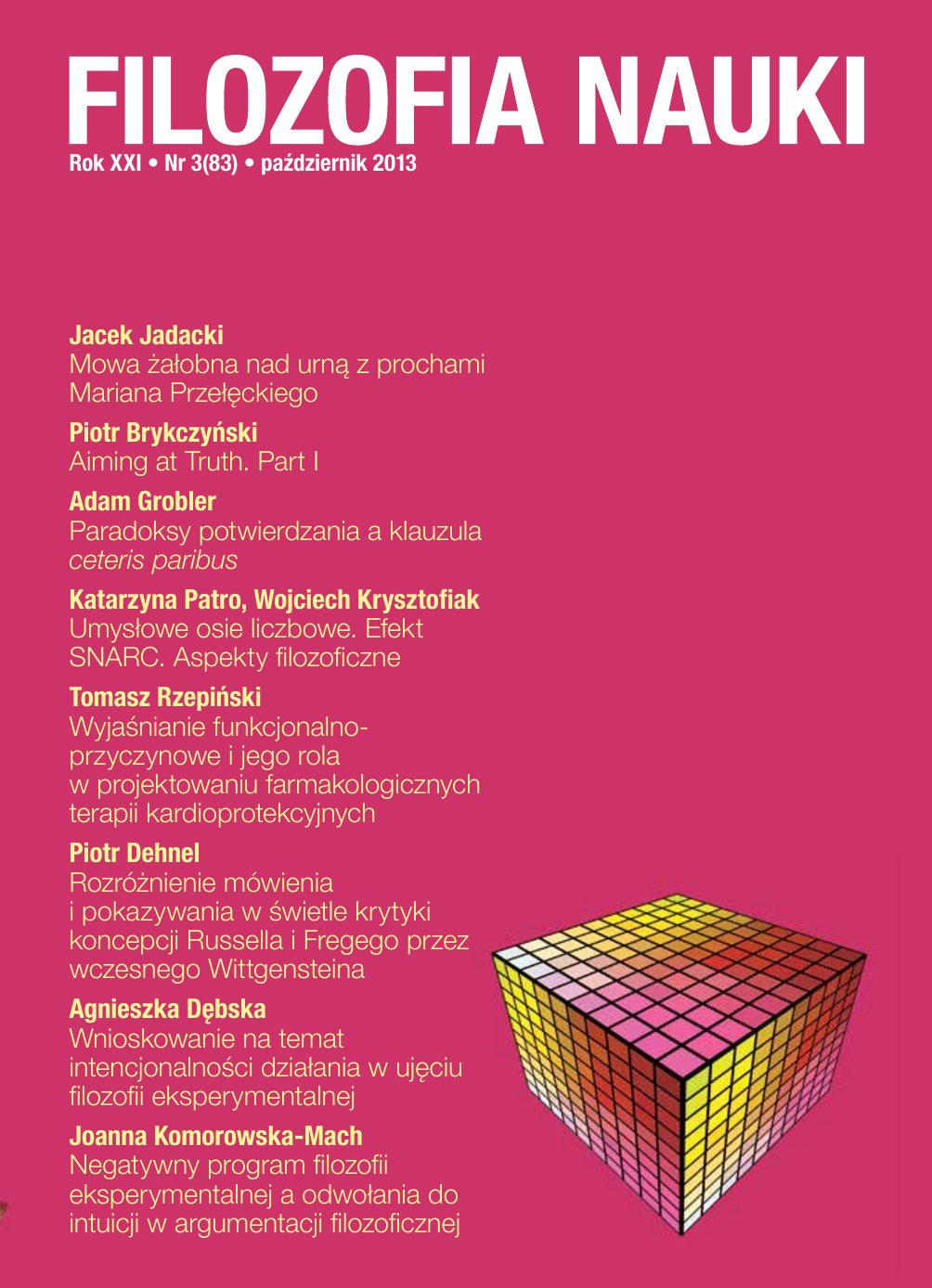Negative Program of Experimental Philosophy and Appealing to Intuition in Philosophical Argumentation
Keywords:
experimental philosophy, intuitions, philosophical argumentationAbstract
The aim of this paper is to undermine one of the main assumptions of the negative program of experimental philosophy. Experimental philosophers claim that it is possible to verify the validity of some classical philosophical arguments which appeal to intuitions by empirically testing whether those intuitions are in fact commonly shared. I argue that experimental philosophers wrongly identify the function that appealing to intuition plays in such arguments. By analyzing several classical philosophical arguments quoted by experimental philosophers, I show that declaring that something is intuitive does not play a role of a premise in an argument. My claim is that its purpose is rather to set common ground between the author of the argument and her audience. Therefore questioning the commonness of intuitions does not lead to the falsification of such arguments.Downloads
Published
2013-09-01
How to Cite
Komorowska-Mach, J. (2013). Negative Program of Experimental Philosophy and Appealing to Intuition in Philosophical Argumentation. The Philosophy of Science, 21(3), 157–165. Retrieved from https://fn.uw.edu.pl/index.php/fn/article/view/734
Issue
Section
Articles















 Filozofia Nauki/The Philosophy of Science | ISSN 1230-6894 | e-ISSN 2657-5868
Filozofia Nauki/The Philosophy of Science | ISSN 1230-6894 | e-ISSN 2657-5868